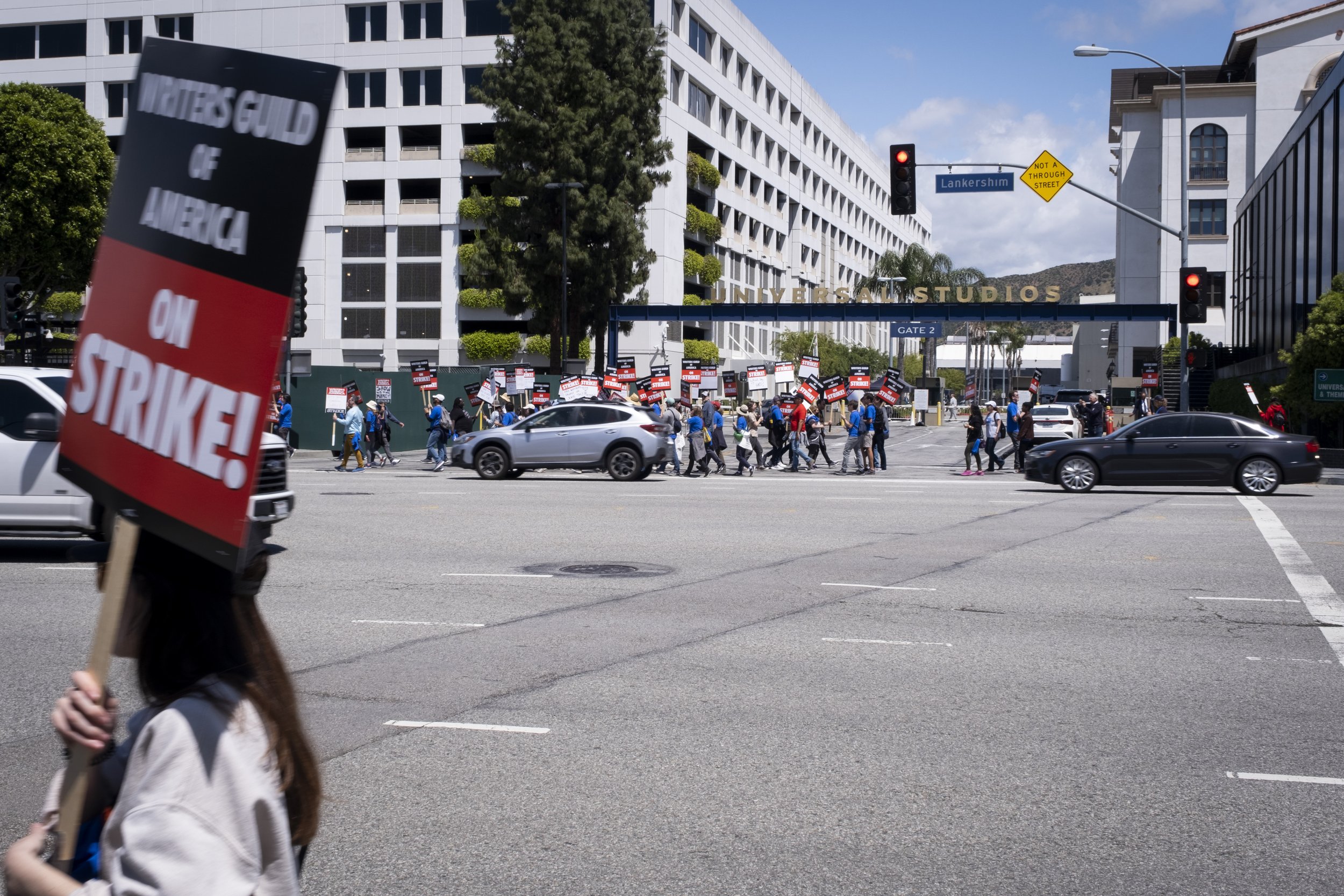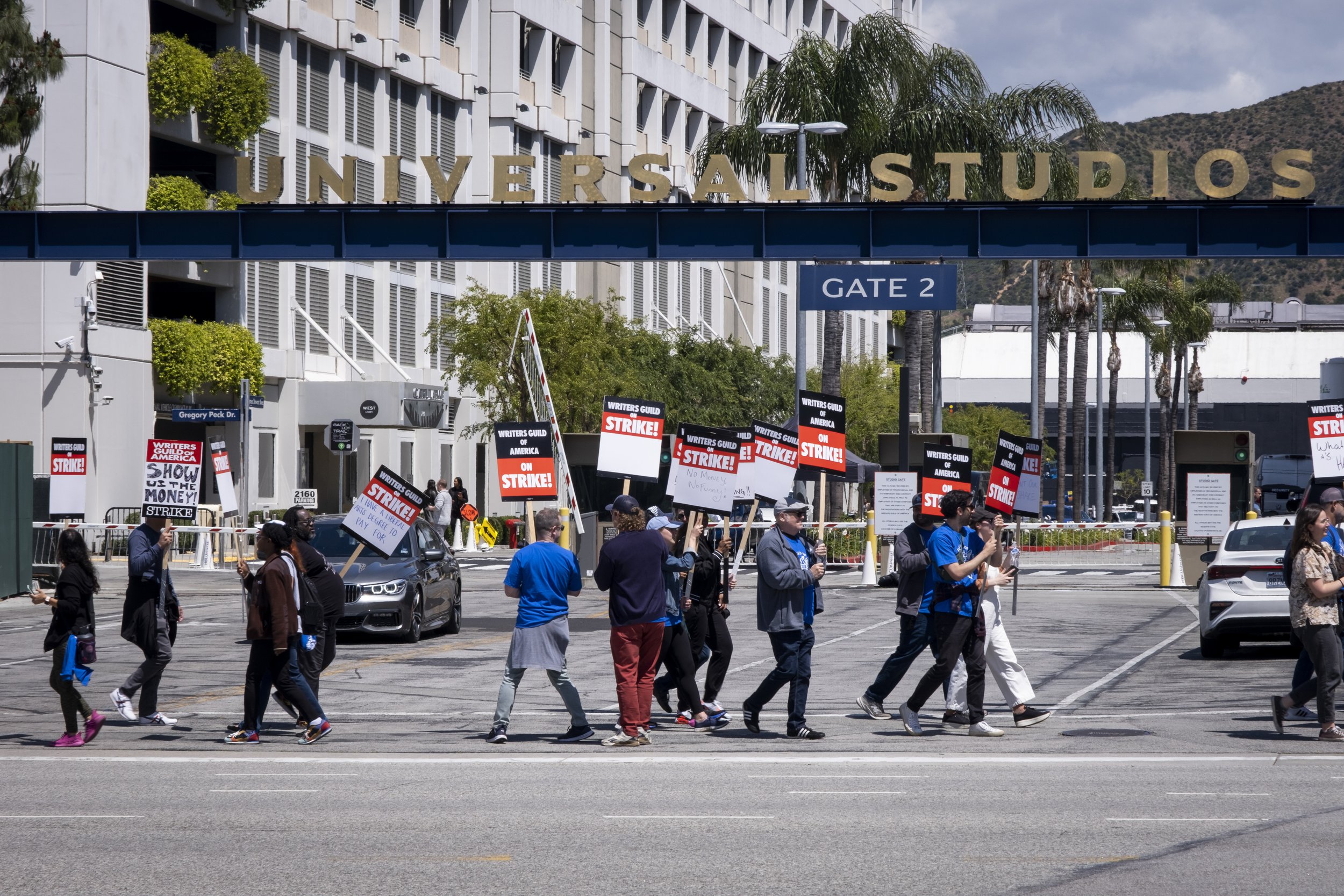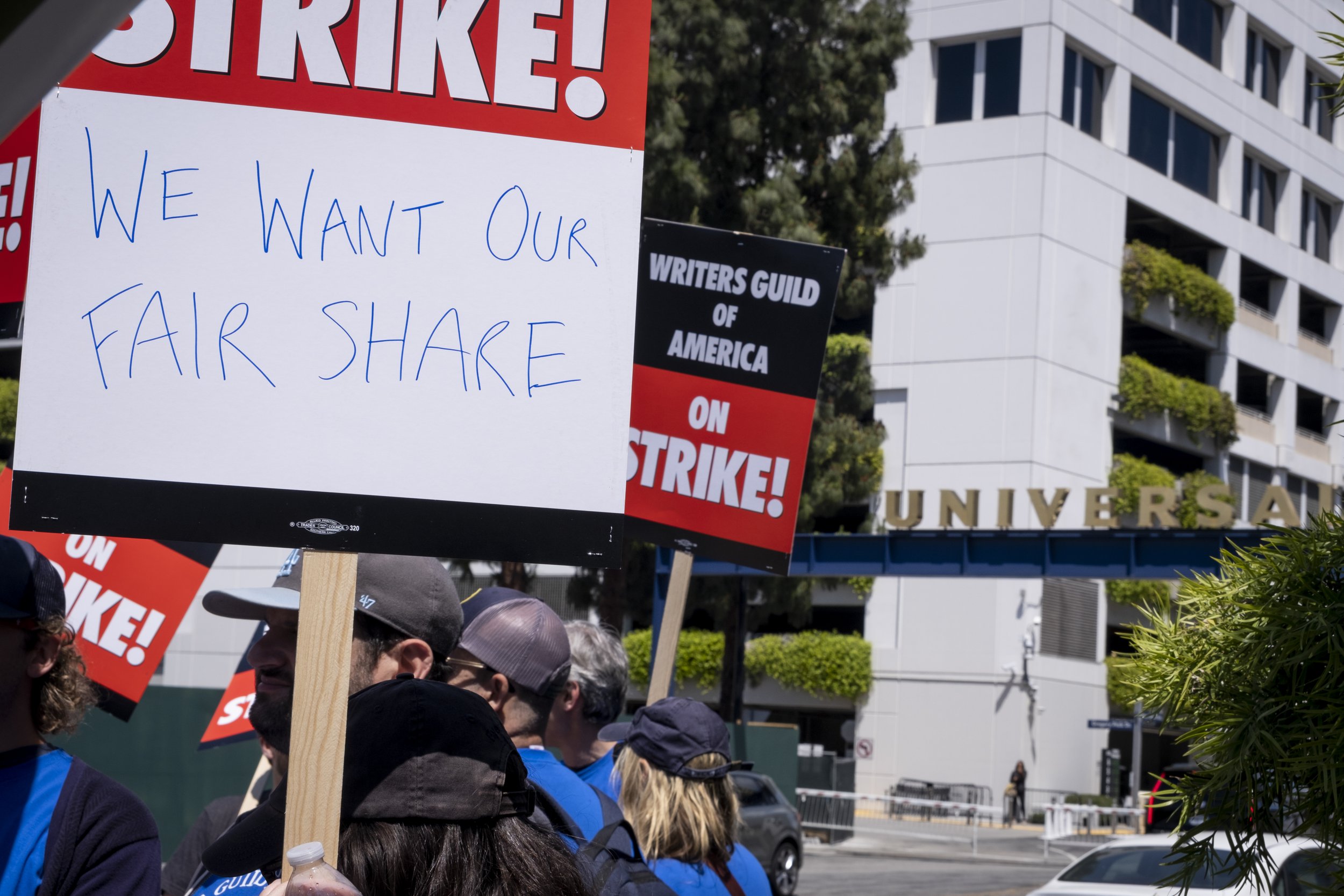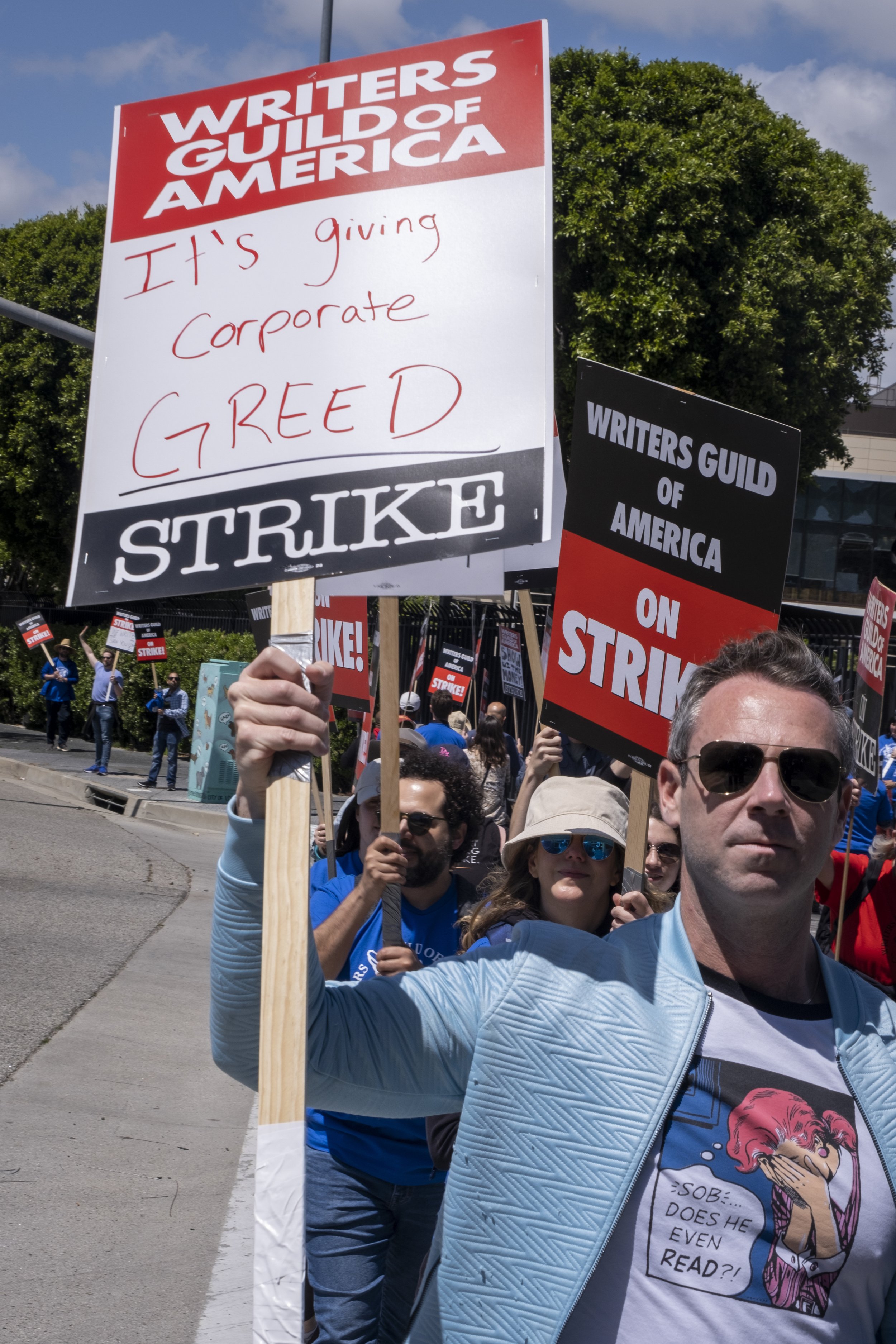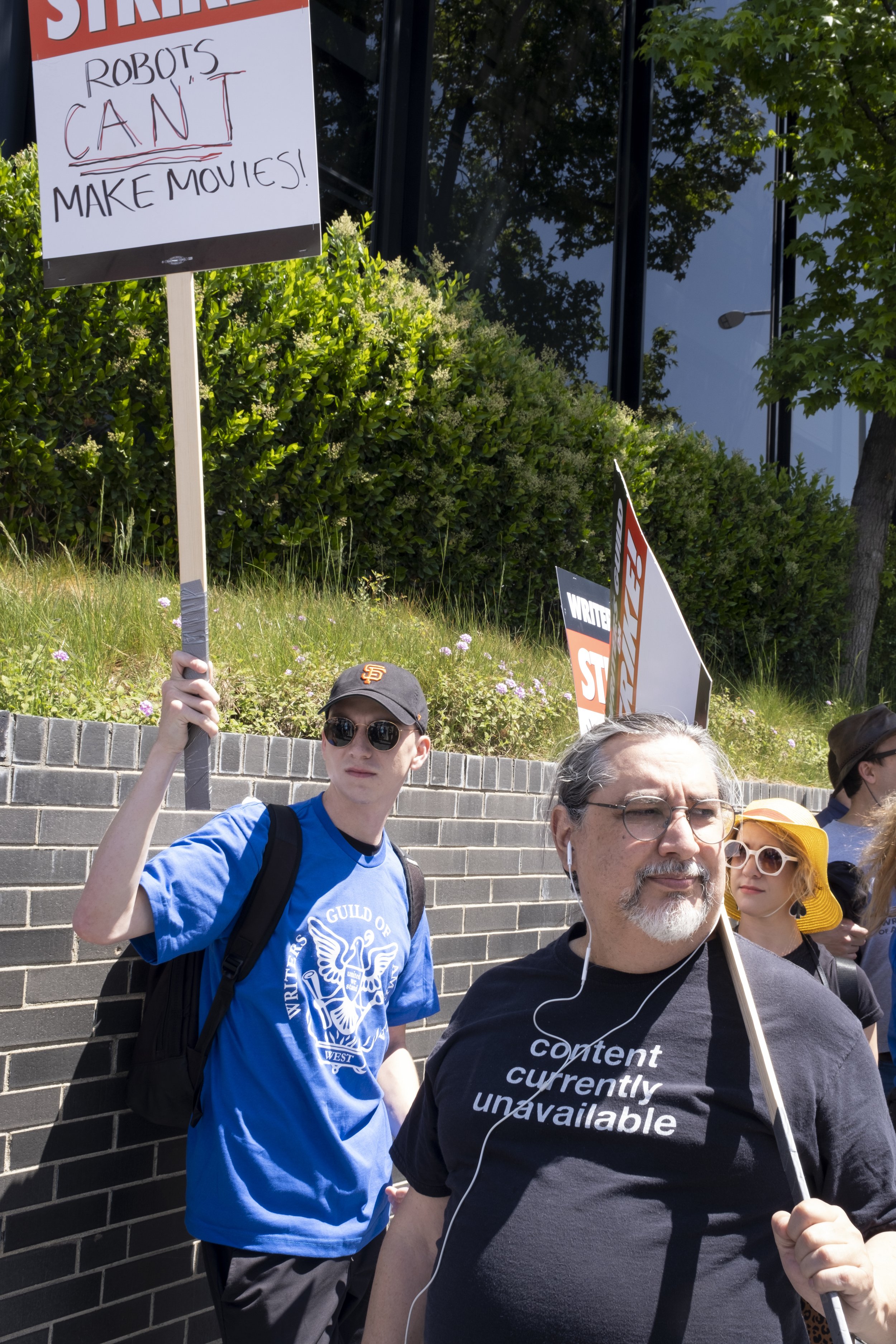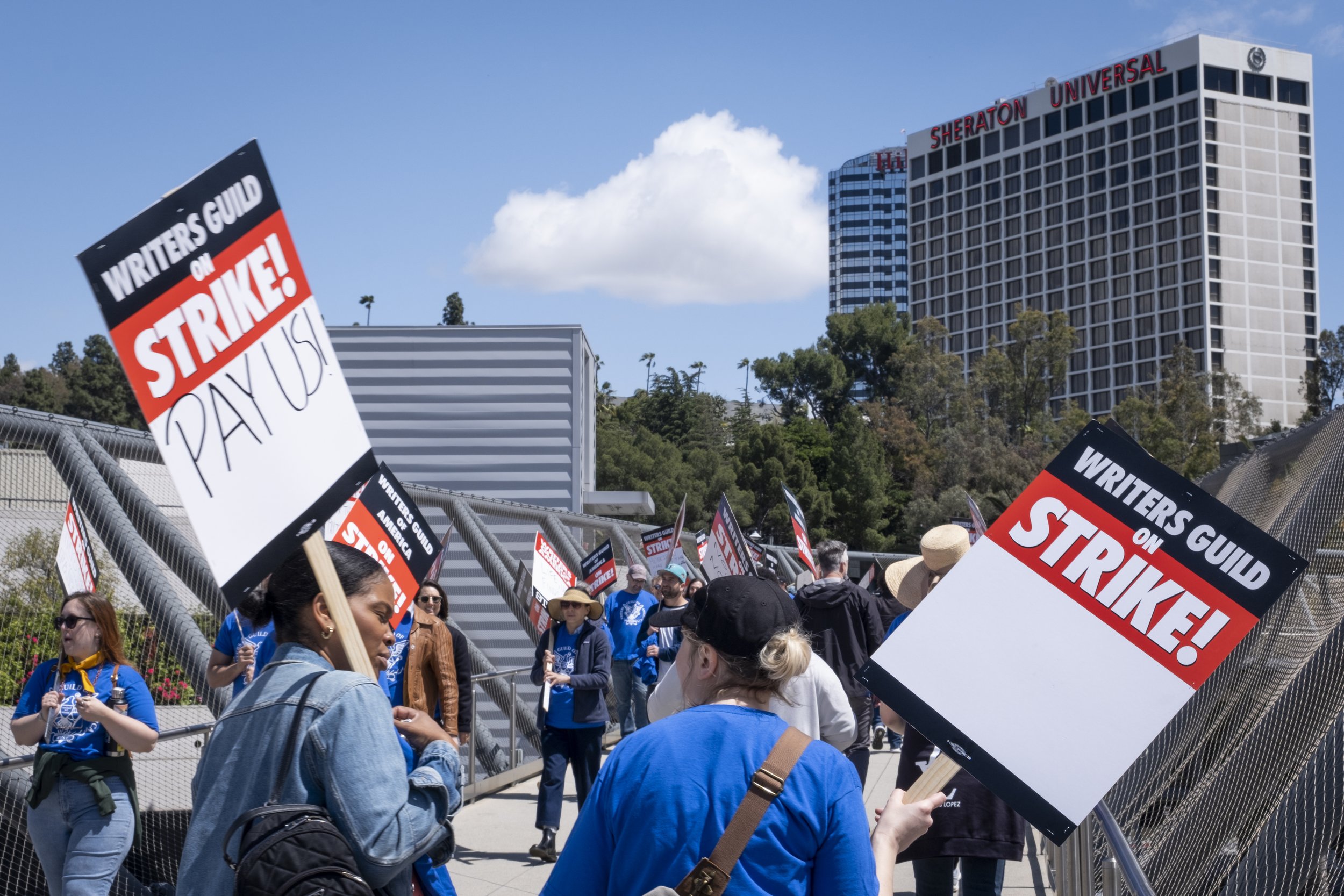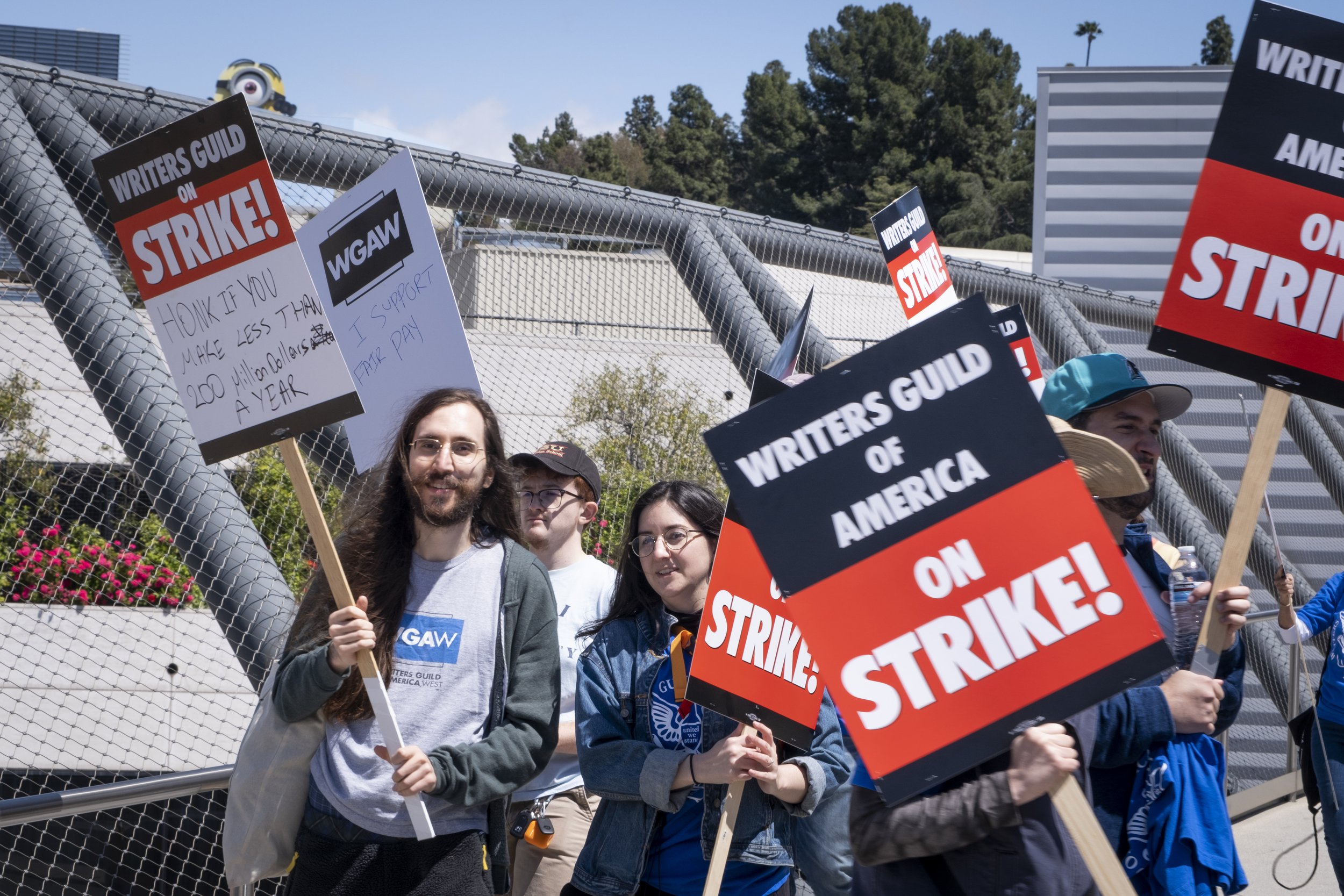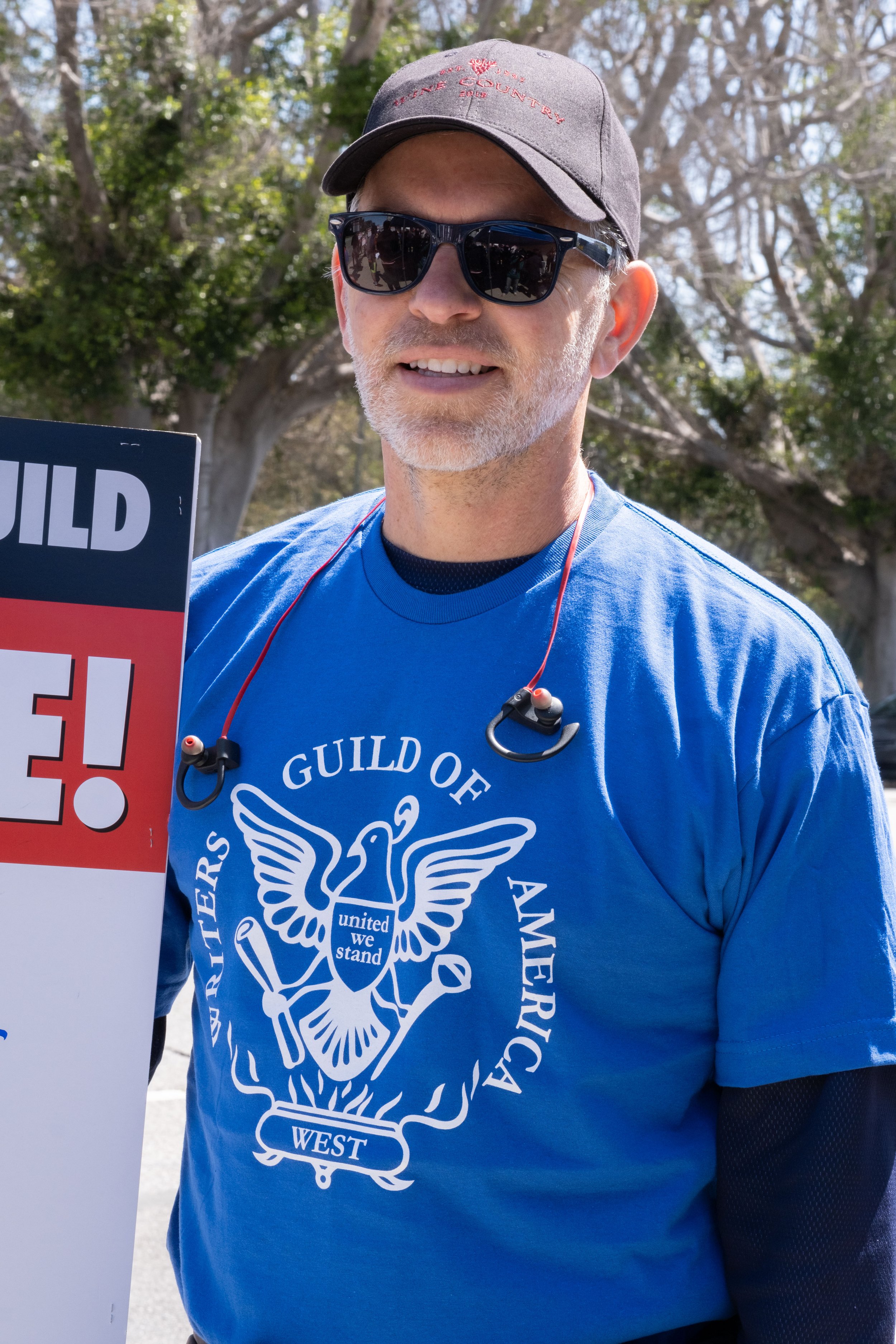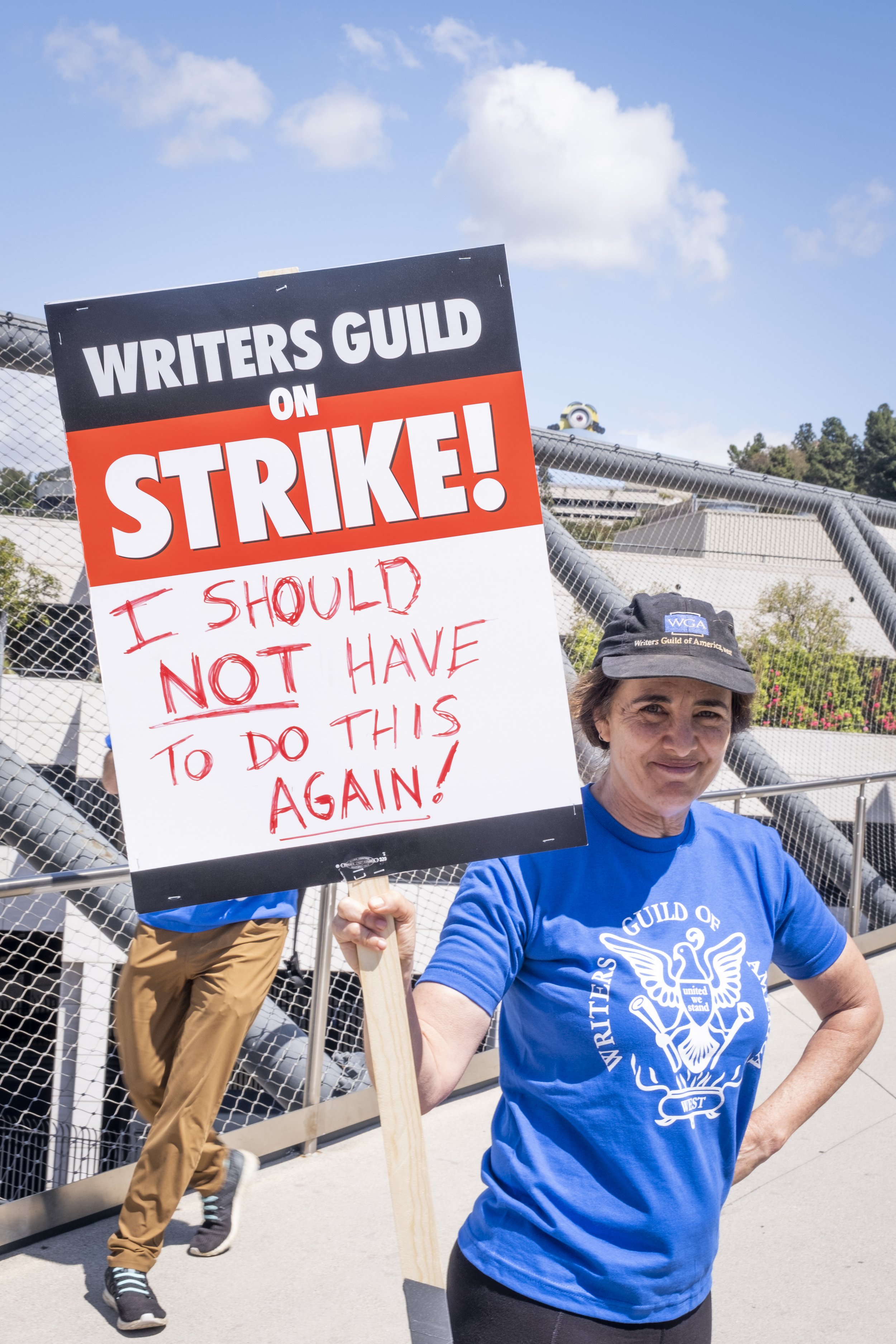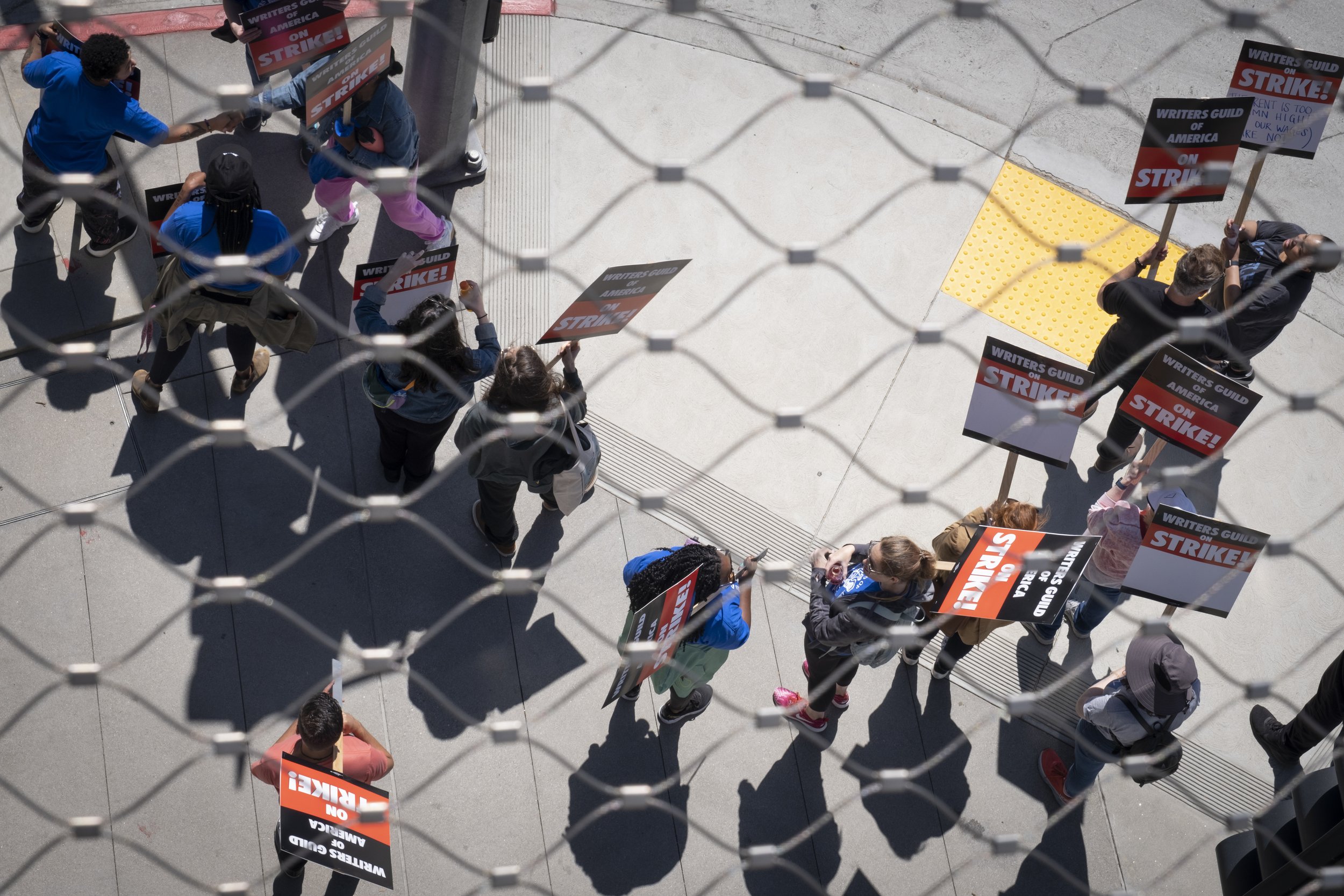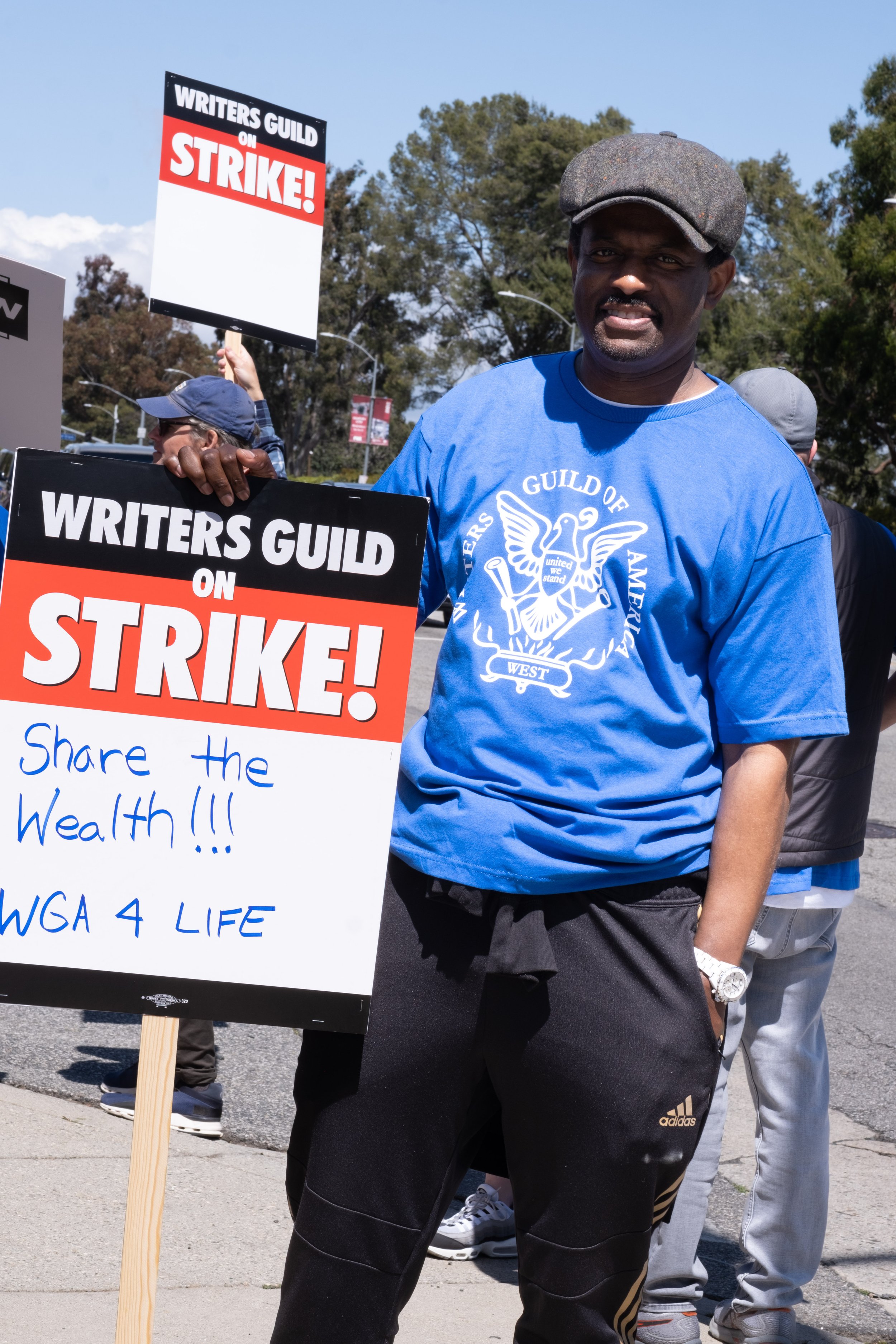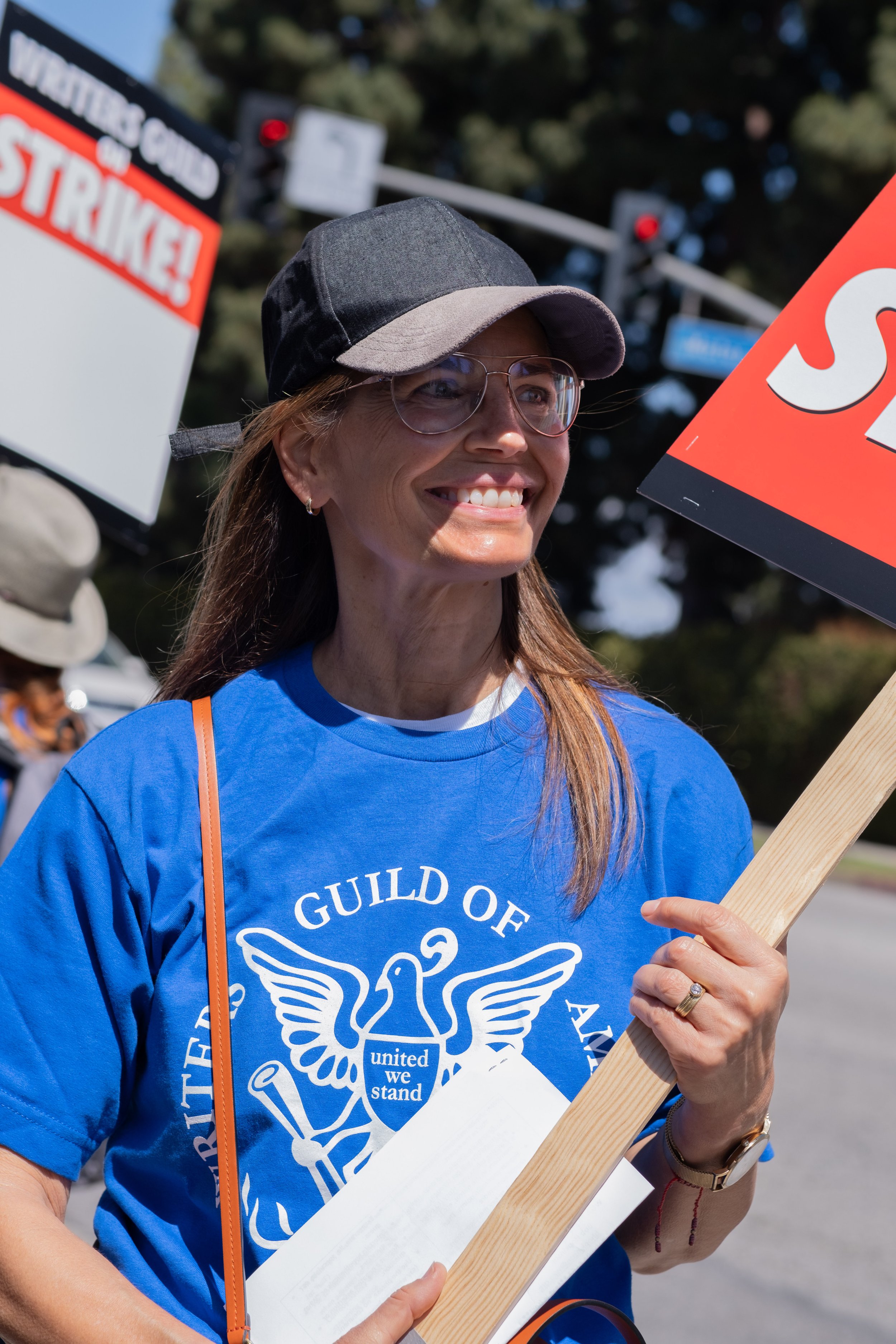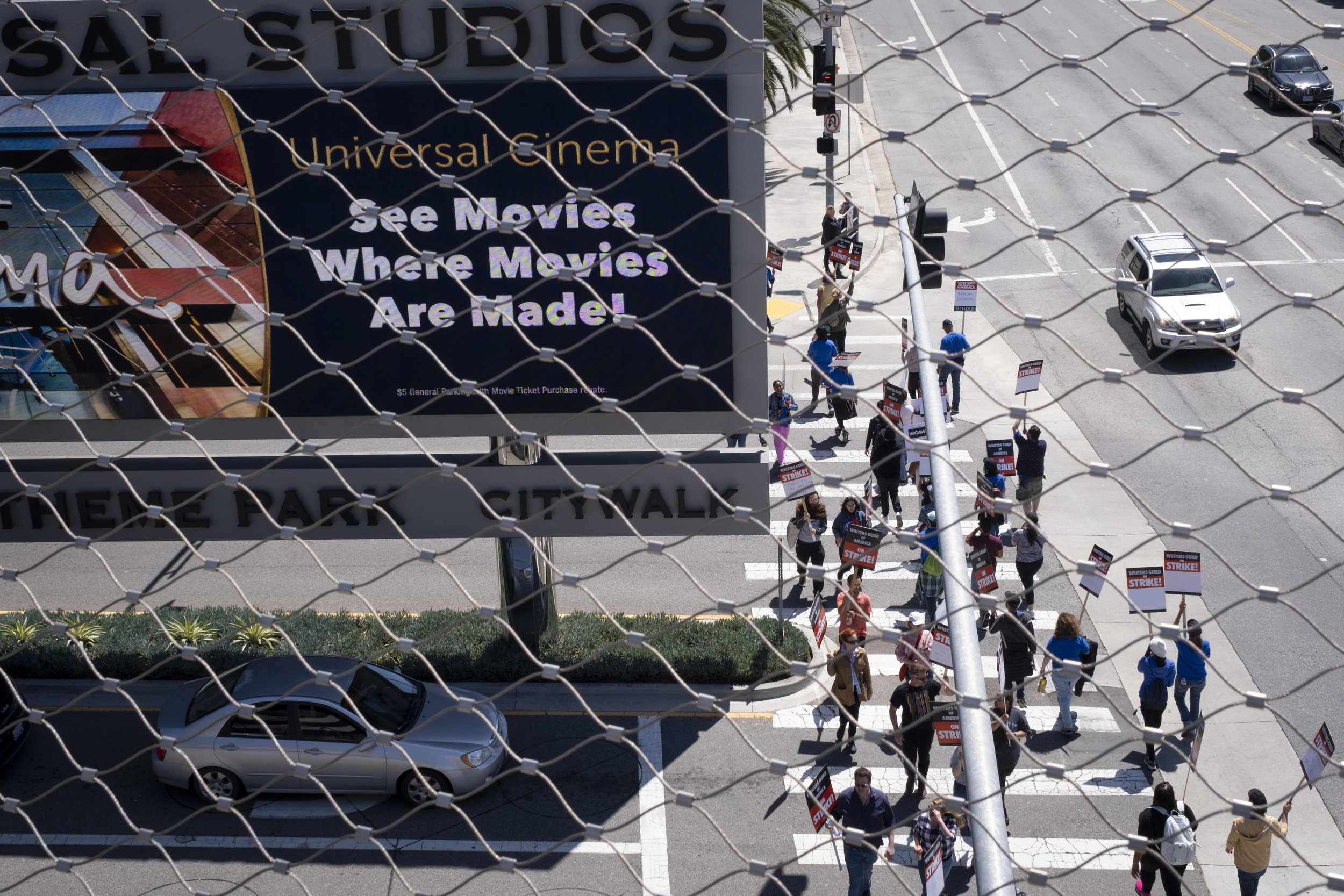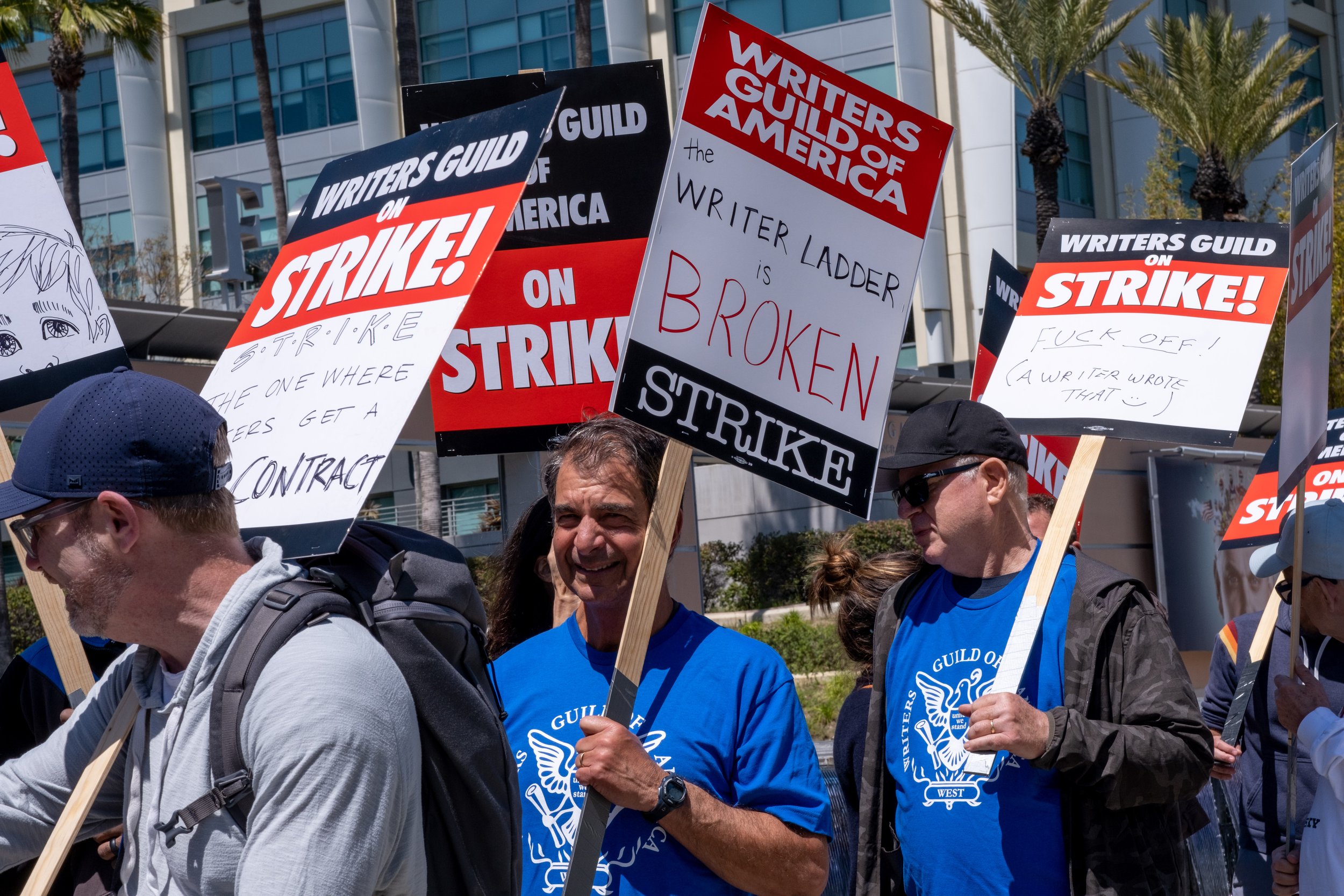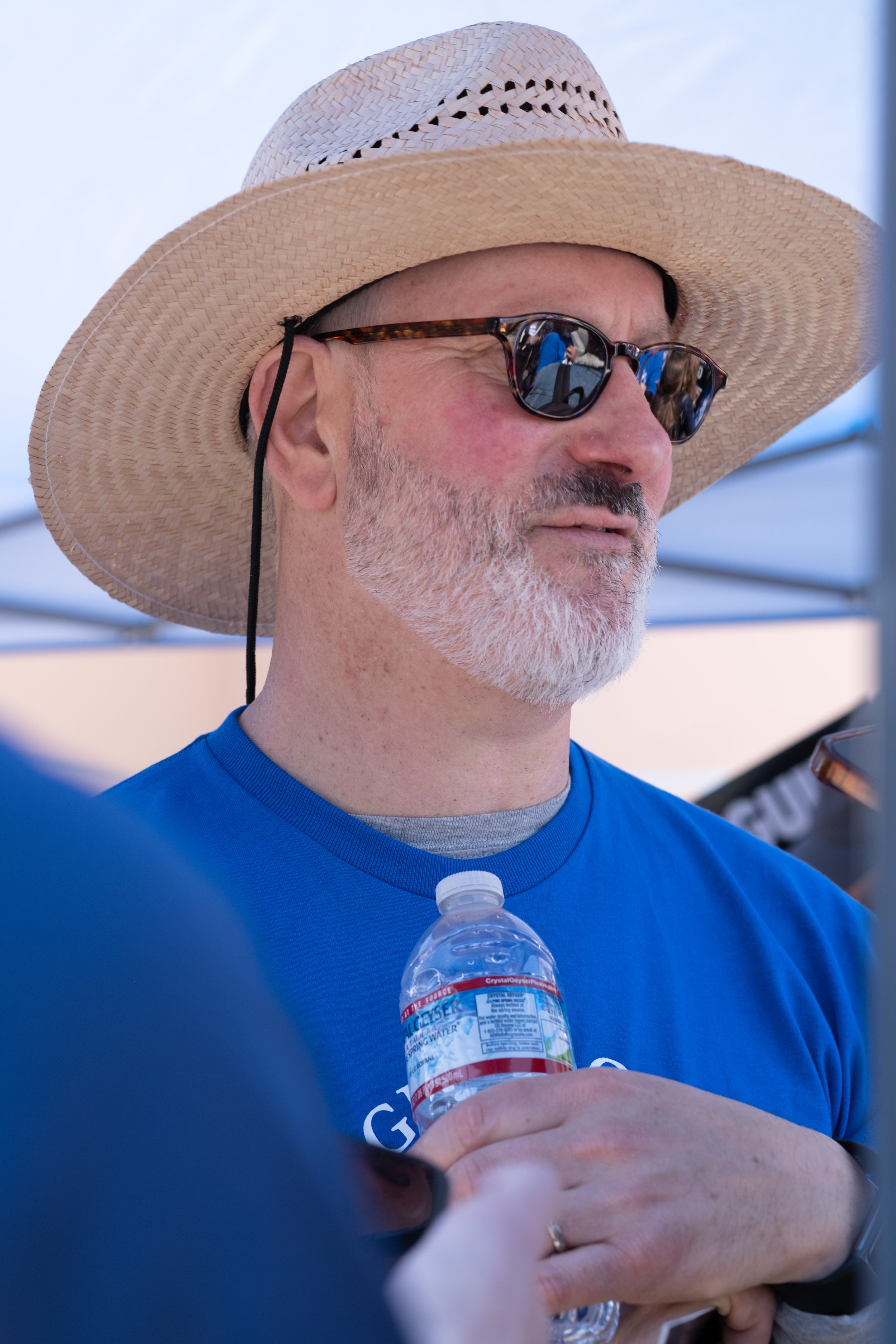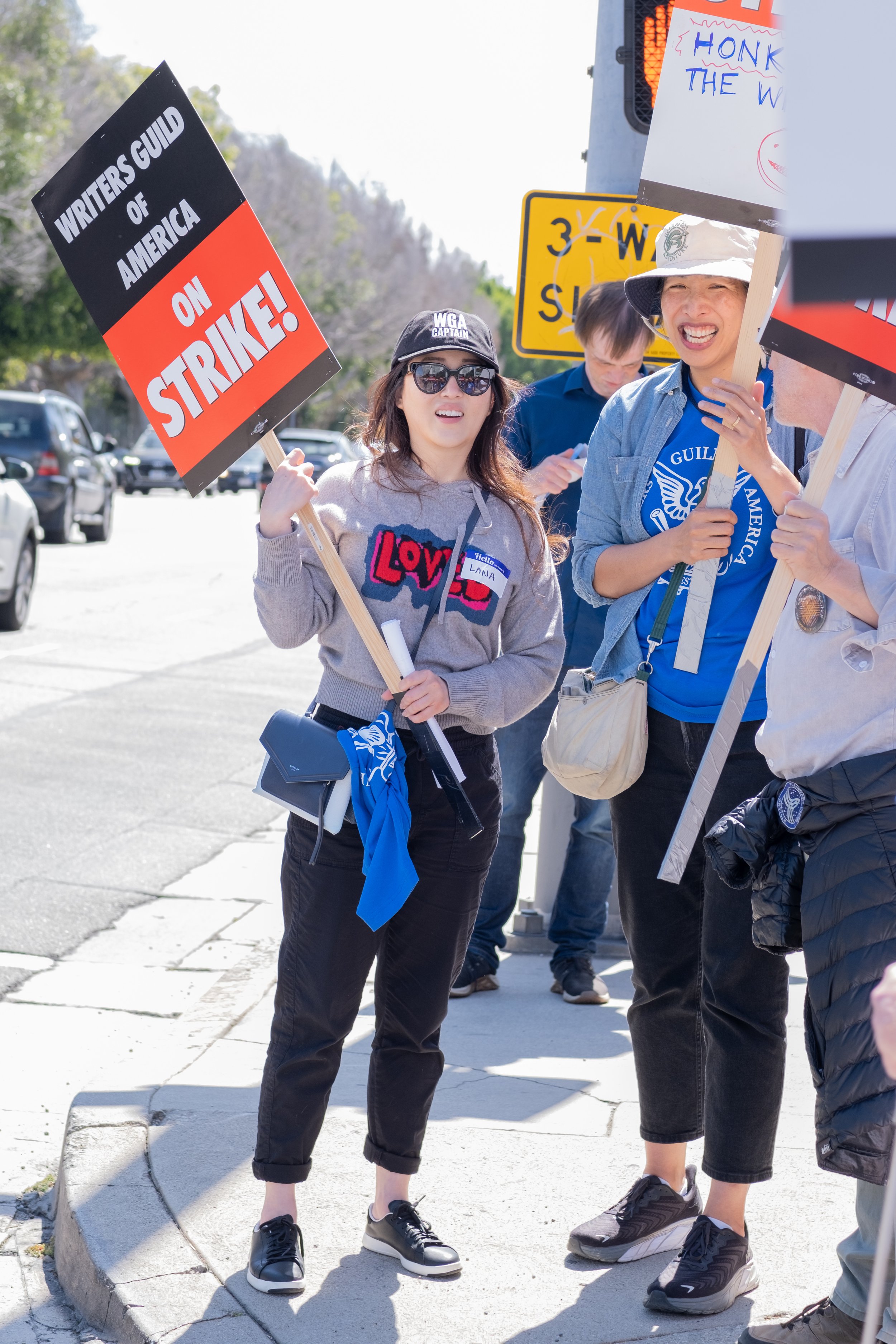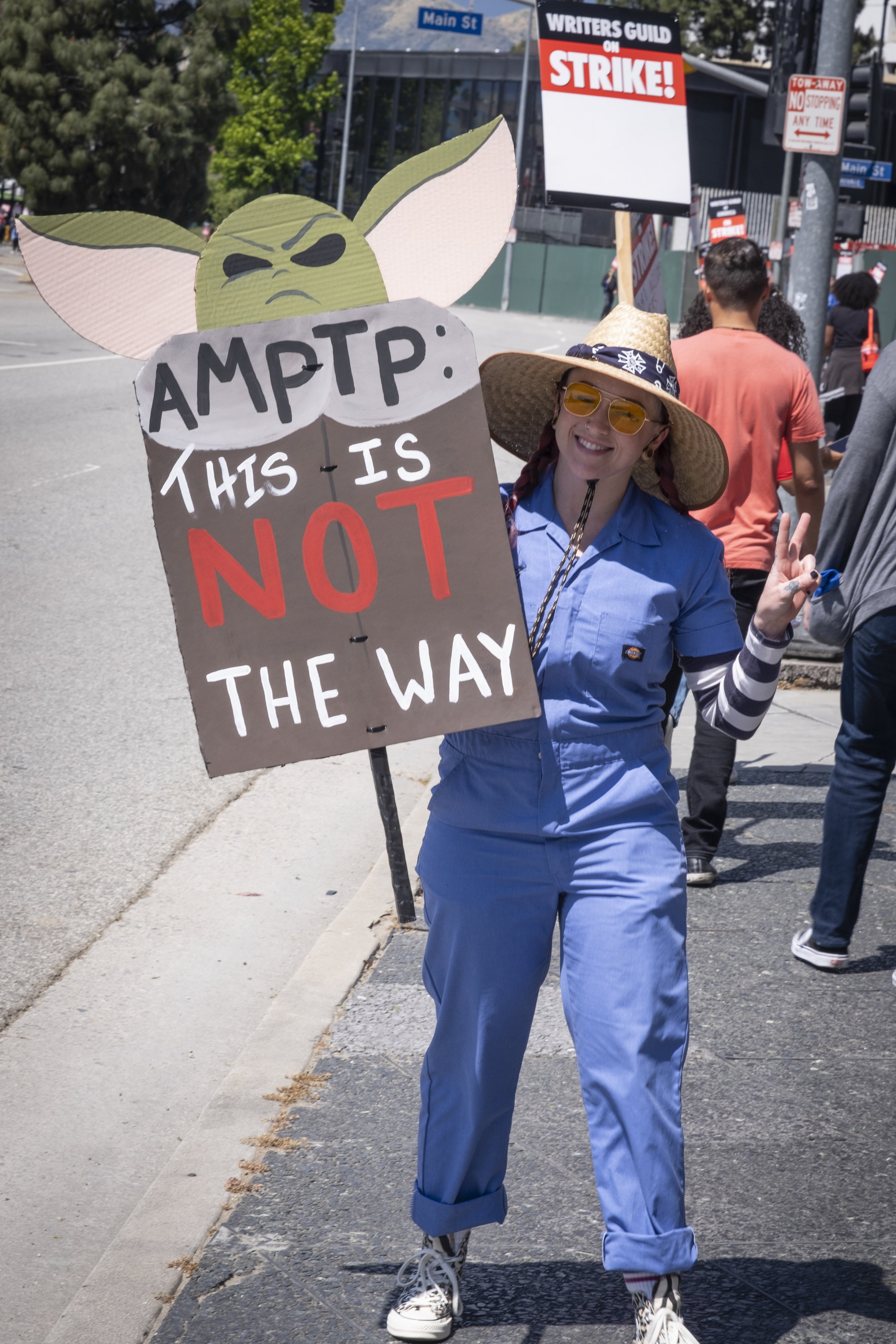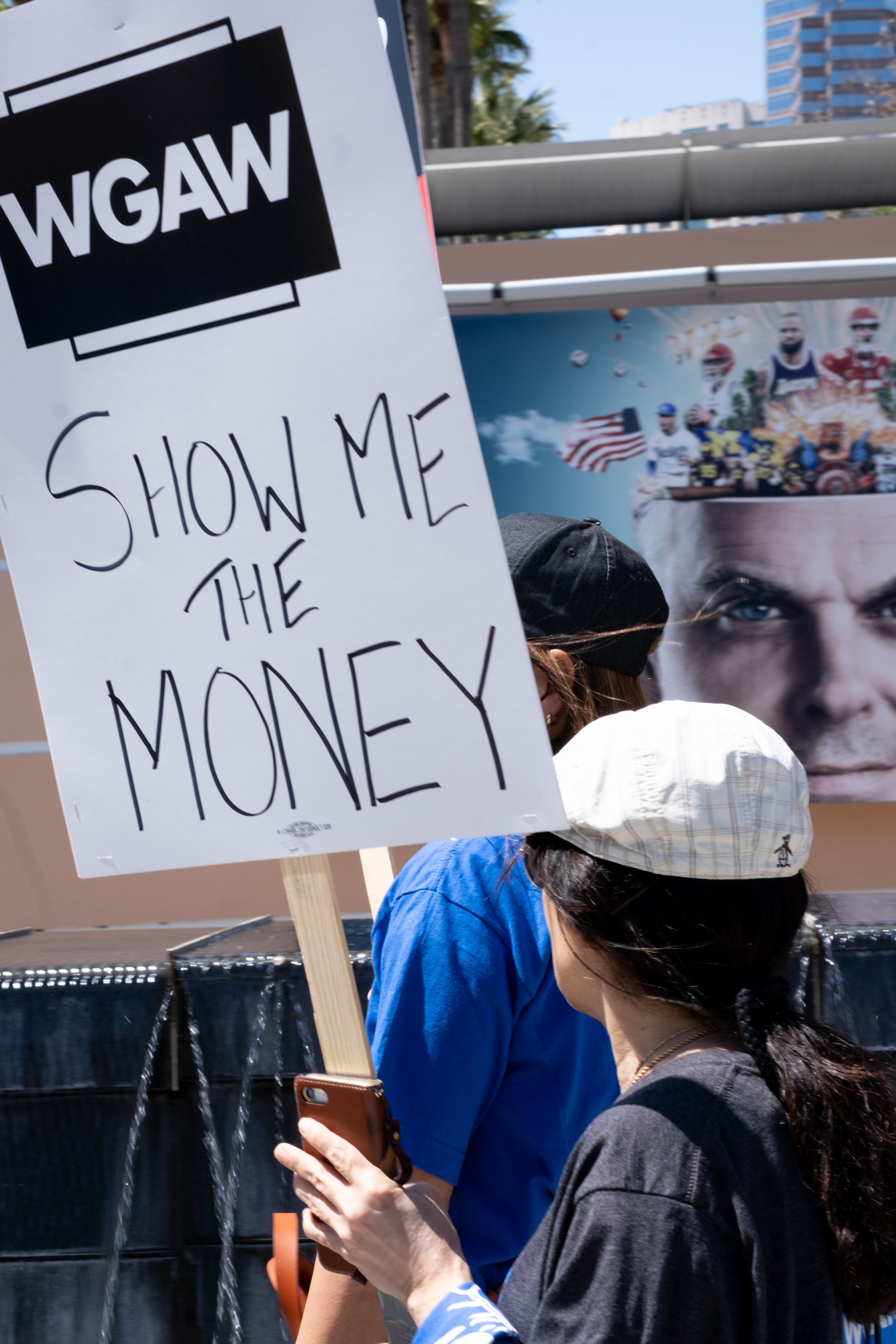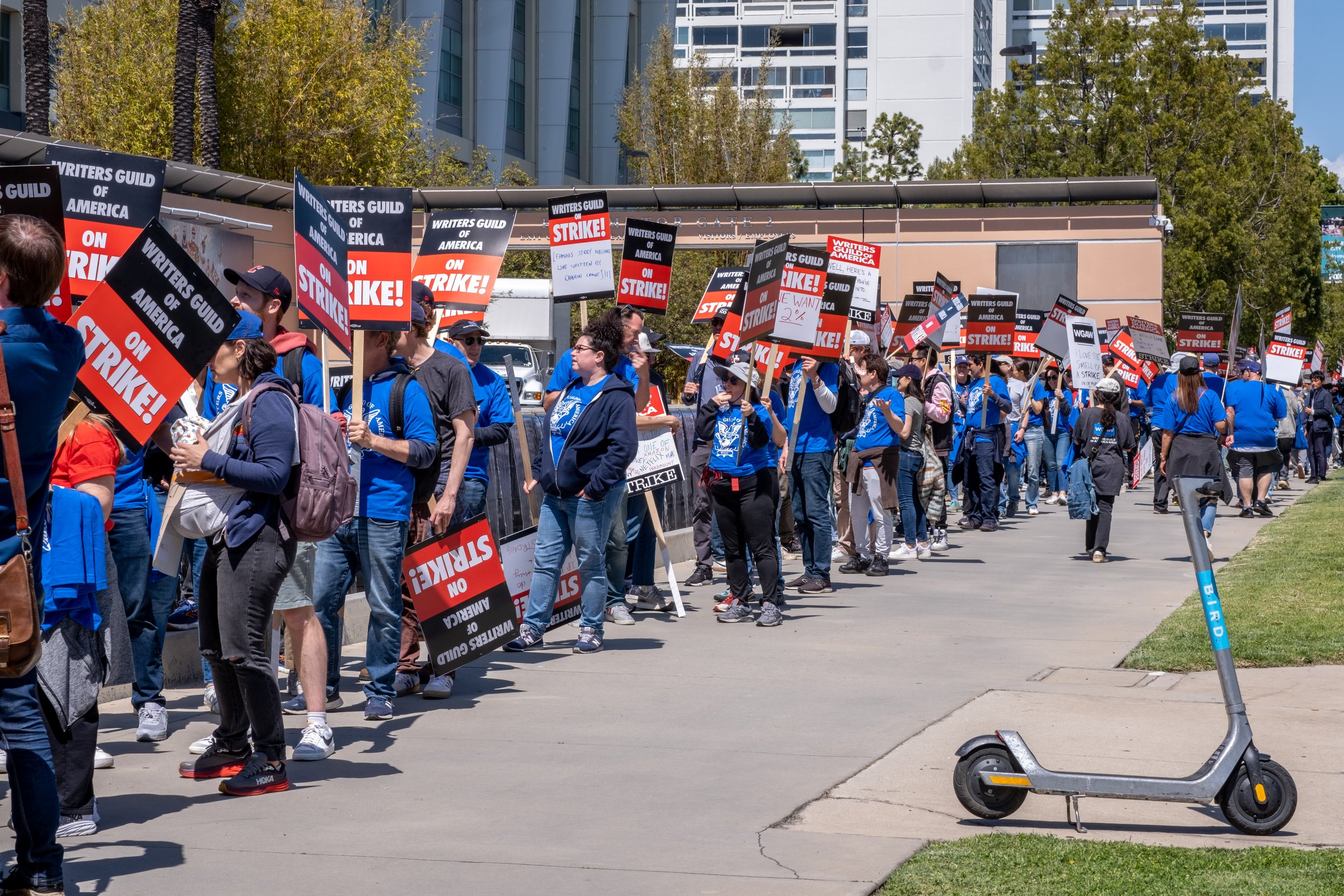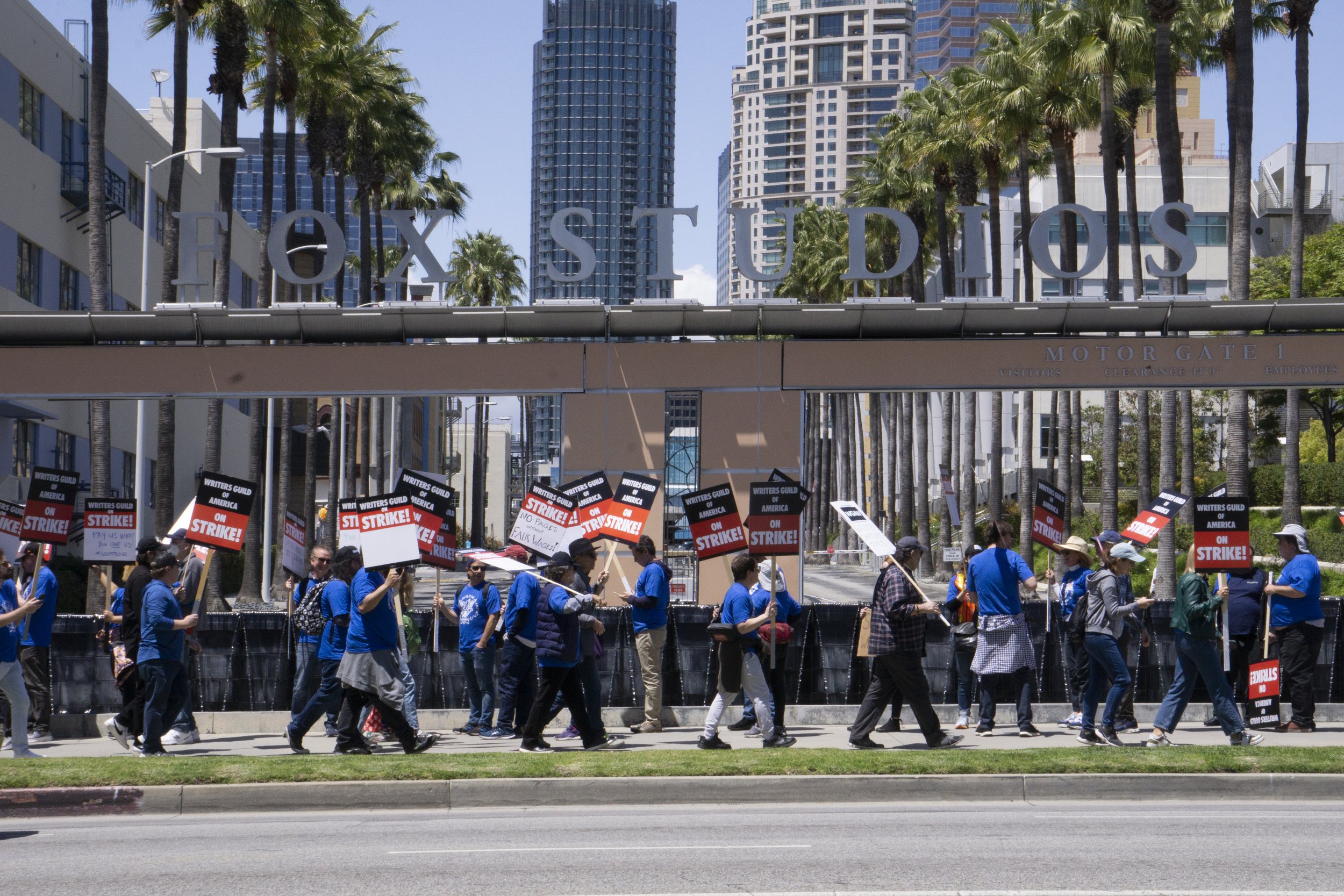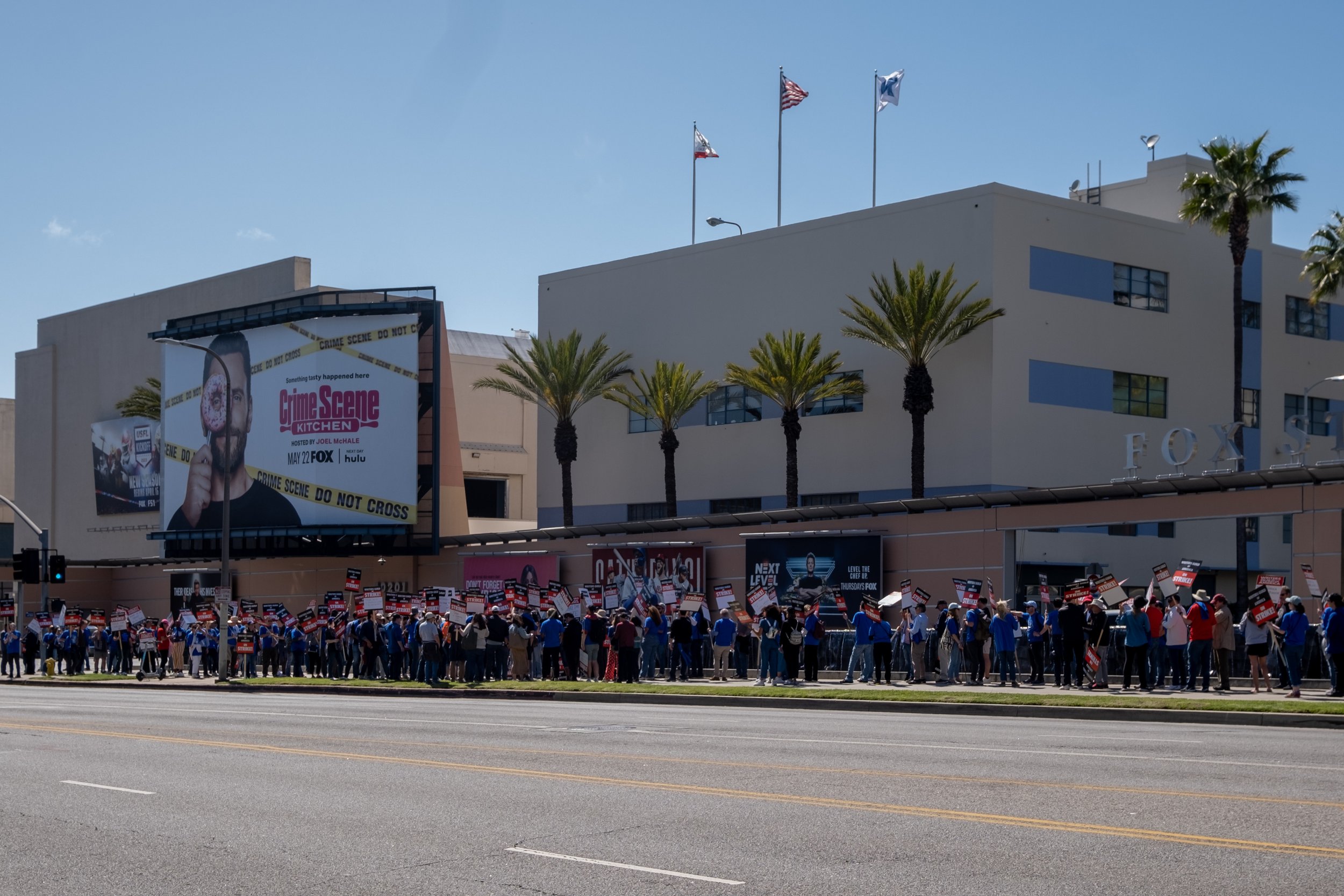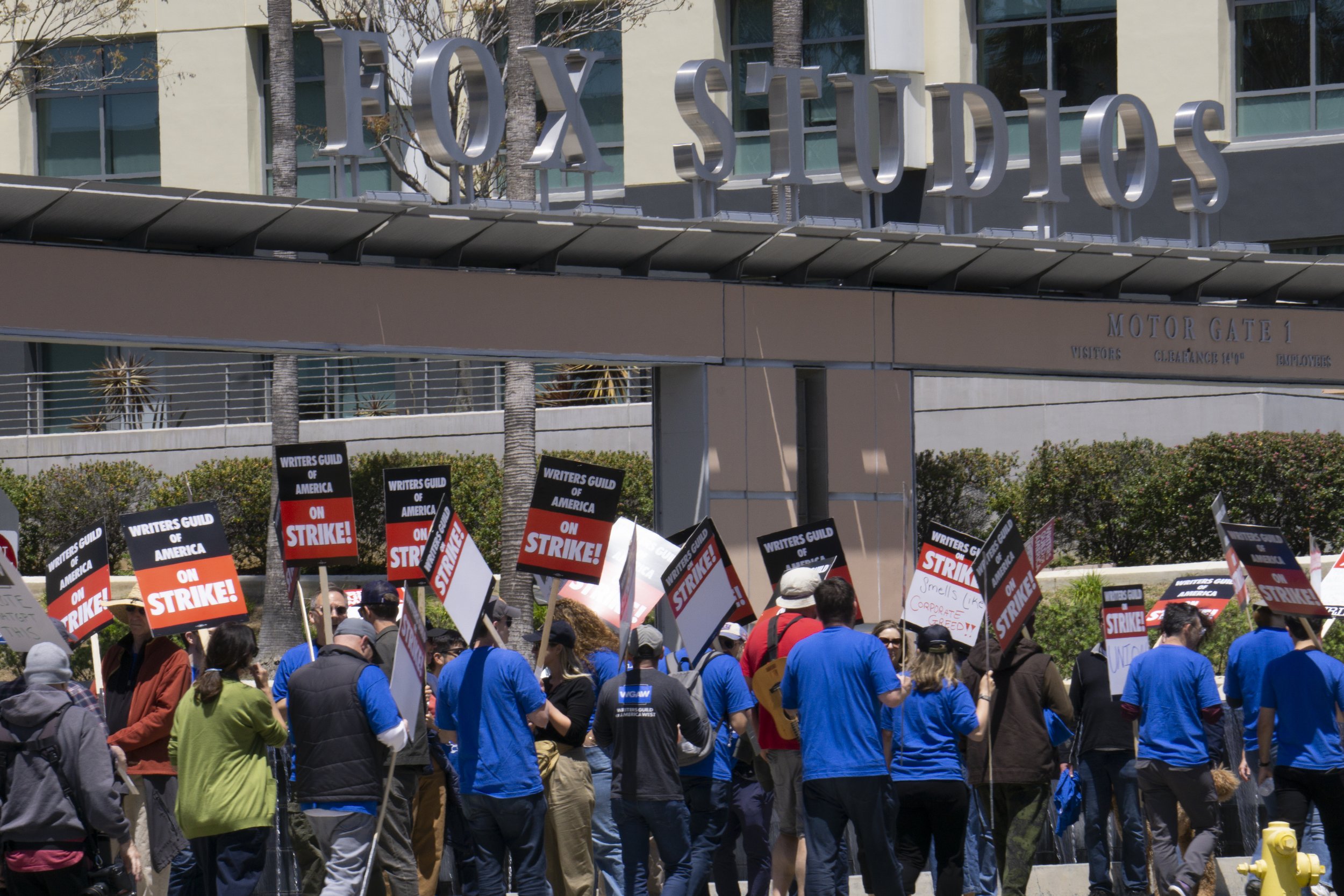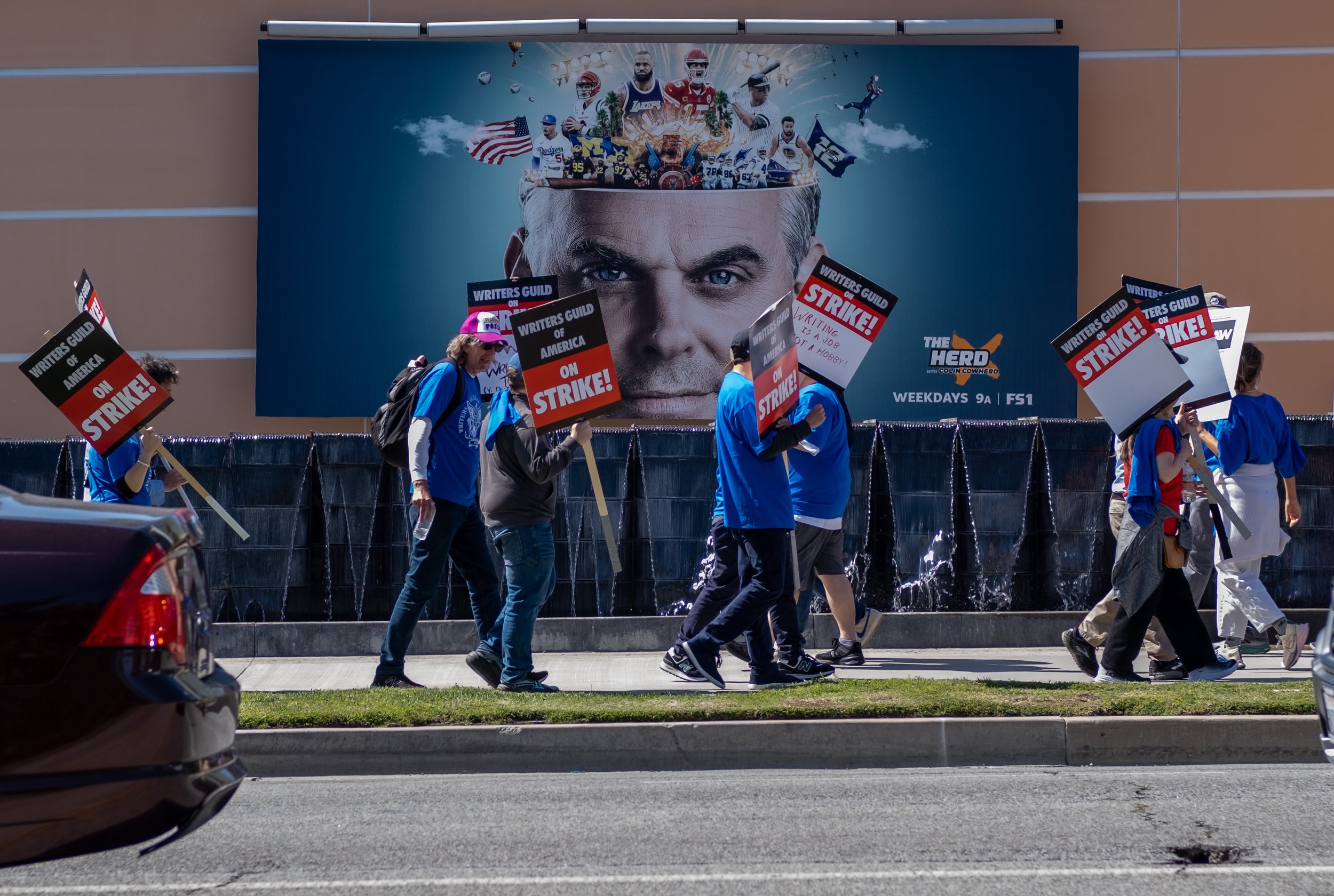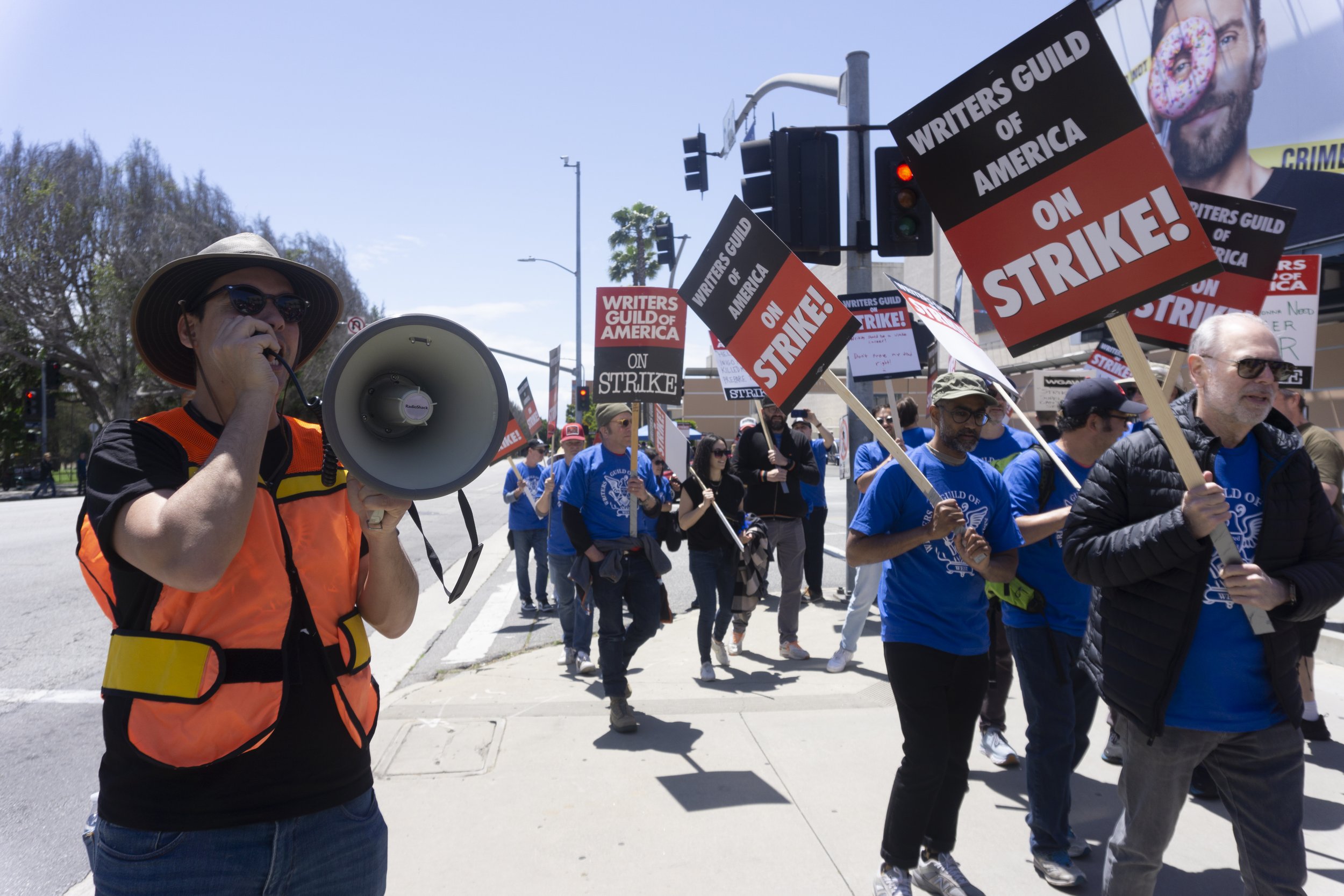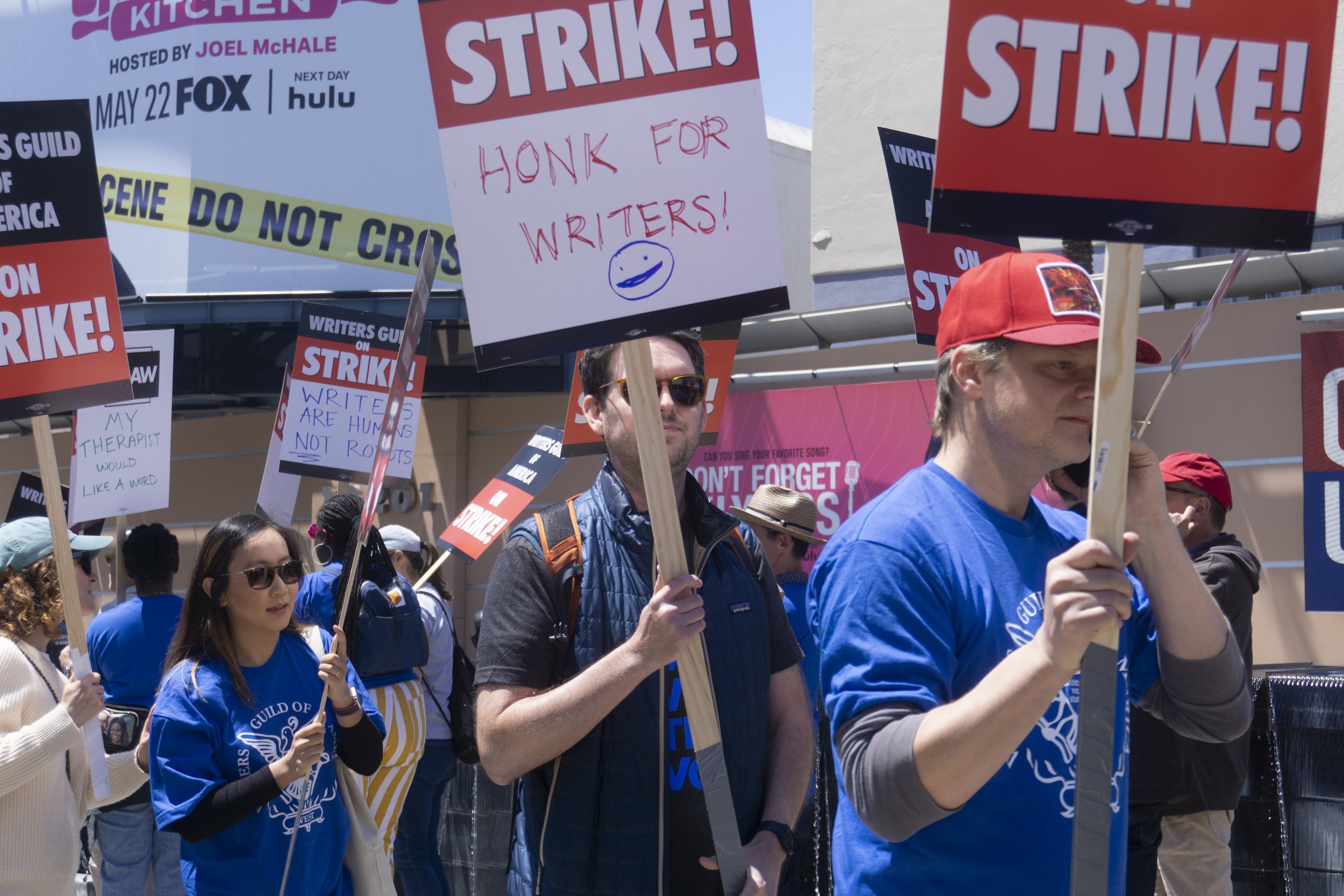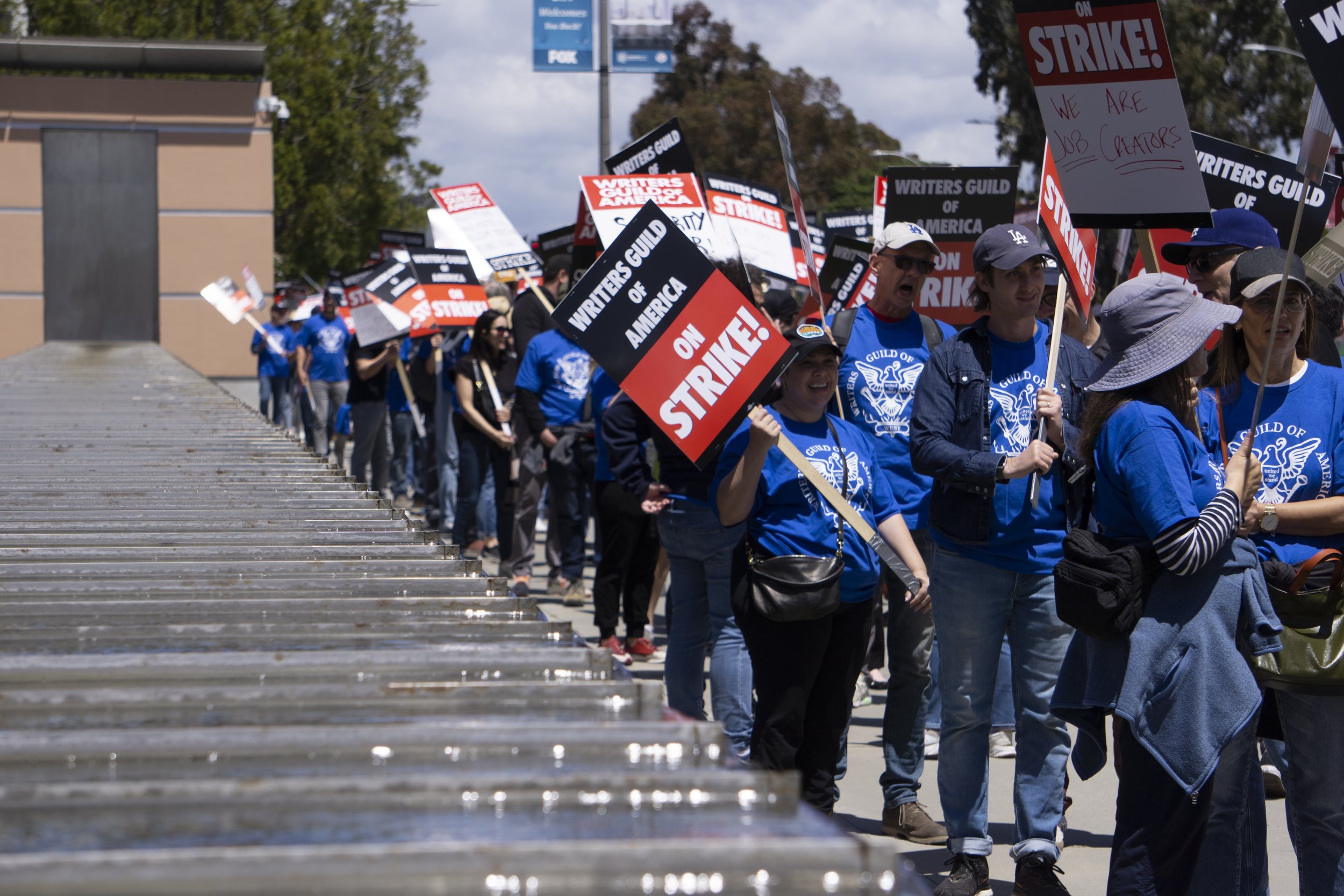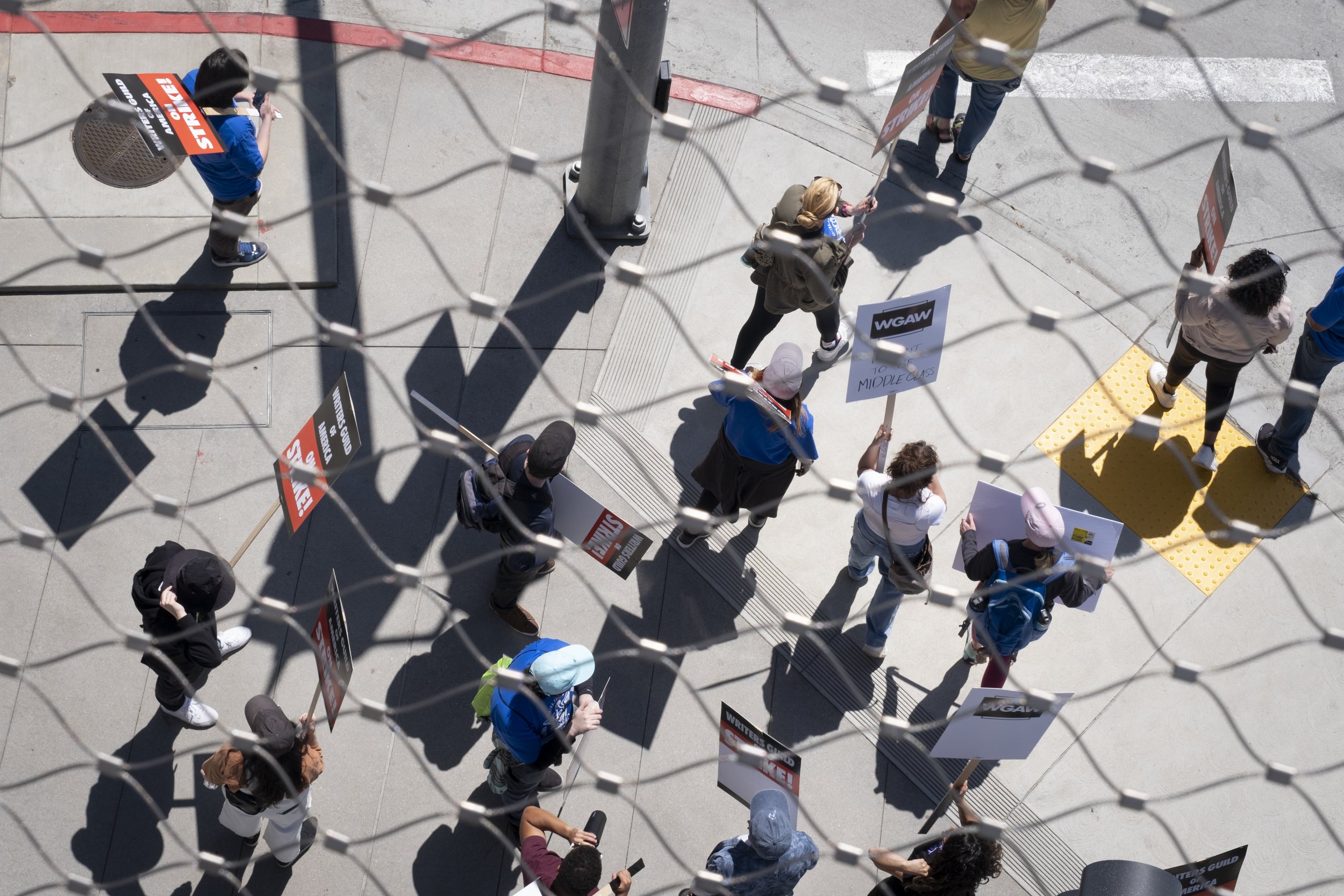Picketing for Fair Pay: Writers Guild of America Goes on Strike
Picketing began at multiple studio locations across the city as WGA members demand better compensation.
Members of the Writers Guild of America (WGA) set up picketing lines in front of television studios on Tuesday, May 2, following failed negotiations with the Alliance of Motion Picture and Television Producers (AMPTP). This marks the beginning of a strike not seen since 2007.
The WGA gave a statement at midnight Monday saying that the studios had “created a gig economy inside a union workforce,” and that their stance in negotiations “betrayed a commitment to further devaluing the profession of writing.” The AMPTP released a statement in response saying they “remain united in their desire to reach a deal that is mutually beneficial to writers and the health and longevity of the industry.”
Negotiations between the WGA and AMPTP centered on a number of issues ranging from duration of employment to the use of artificial intelligence in the writers’ room.
The WGA proposed a six to 12-person writing staff per show and a guaranteed minimum number of weeks of employment for writing staff depending on the duration of the show, ranging from 10 to 52 weeks.
The WGA also argued that AI should not be used to write or rewrite literary material. The AMPTP rejected the proposal and offered to hold “annual meetings to discuss advancements in technology.” AI tools such as ChatGPT have created concerns about using artificial intelligence programs to replace human creativity and labor.
Members gathered in front of studios including FOX, Universal, CBS, Disney, Netflix, and Amazon. They were joined by the Directors Guild of America, International Alliance of Theatrical Stage Employees, Screen Actors Guild, and Teamsters.
Susannah Grant was one of the writers at the Fox Studios picket line in Century City. A screenwriter of over 20 years, Grant spoke on the importance of a livable wage for writers in media.
“It starts with the script and writers and they should be paid for it. Gradually over the last few years compensation has gone down, job security has gone down,” she said. “People have to work three, four jobs just to make their year and it's become untenable.”
Recalling the 2007 writers strike, Grant said there was backlash from the media, questioning the motives and timing of the strike.
“There's been a lot of silence around that, this time,” Grant said. “It makes me wonder or maybe hope that a lot of people in the business sense that it's just not working for a lot of people, and that the industry might be kind of broken for most of the workers.”
Ted Cohen, a comedy writer and WGA member of 28 years, said the decisions of AMPTP are an opportunity for the streaming services and networks to cut their financial losses.
“If they have projects that they don't really care that much about, they’ll wipe them to take losses and kind of move on,” said Cohen.
In the last several years, streaming services have increasingly become the most popular platform for TV and movies , raising concerns for writers' residual income.
The WGA is asking for streaming services to reveal their watch statistics and provide residuals for the writers involved.
Sean Collins-Smith, WGA show captain and writer on Chicago PD, attended the picket at Universal Studios in Studio City, California.
“We’re fighting for the streamer writers. So that they can survive, and live and eat,” Collins-Smith said. “All of these unions have come together to say, ‘look, the last ten years of streaming have changed the industry, and you guys need to catch up with it.’”
WGA proposals would gain writers approximately $429 million per year. The counteroffer from AMPTP is approximately $86 million per year, almost half of which is from the minimum increase. The offer covers around a fifth of the cost that the WGA is demanding.
The strike is set to continue for the foreseeable future.

